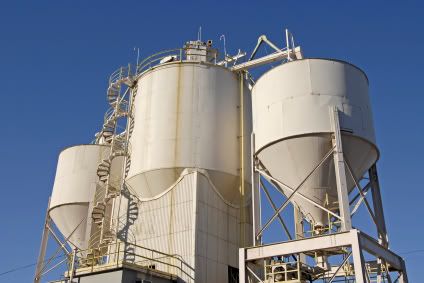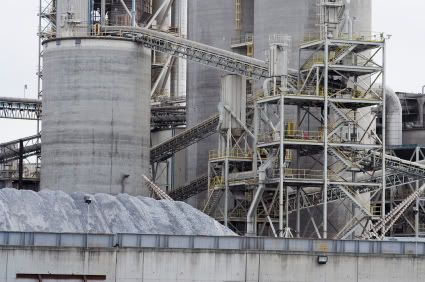| UPDATE: Revision 8 of the Pennsylvania Continuous Source Monitoring Manual |
 Comments are being accepted until October 13, 2008 on the DRAFT Technical Guidance concerning the "Applicability Determination and Implementation Procedures for Continuous Source Monitoring Manual Revision 8" published in the Pennsylvania Bulletin on September 13, 2008. The objective of the DRAFT Technical Guidance is to: Comments are being accepted until October 13, 2008 on the DRAFT Technical Guidance concerning the "Applicability Determination and Implementation Procedures for Continuous Source Monitoring Manual Revision 8" published in the Pennsylvania Bulletin on September 13, 2008. The objective of the DRAFT Technical Guidance is to:
- Supersede the previous version of the document that was finalized on December 2, 2006, and posted in the Pennsylvania Bulletin on December 27, 2006.
- Address concerns and issues that were not identified or adequately covered in the 2006 version of this document.
- Incorporate a comprehensive implementation plan that was developed following the completion and testing of the new Continuous Emission Monitoring Document Processing System (CEMDPS).
- Serve as the official announcement that the upgraded CEMDPS has become functional.
After the revision is published as final, any owner/operator of a source that must comply with the monitoring requirements of 25 Pa. Code ž139.102(3) will be required to meet the certification, recording, and reporting requirements of Revision 8 of the Manual. As noted in the DRAFT Technical Guidance, the owners/operators of a facility may comply with all the requirements of Revision No. 8 of the Manual as early as January 1, 2009 and must comply with the requirements of Revision No. 8 of the Manual beginning April 1, 2009. Please note that extensions may be granted to a facility who submits a Revision 8 implementation plan by January 31, 2009.
Revision 8 of the Continuous Source Monitoring Manual will require all affected sources to:
- Upgrade the current data acquisition and handling system (DAHS) to meet the new recordkeeping and reporting requirements, and
- Demonstrate compliance with the more stringent monitoring and quality assurance requirements of Revision 8 of the Manual (especially those monitoring systems currently approved under Revision 6 of the Manual).
If your facility is not currently planning for the implementation of Revision 8 of the Continuous Source Monitoring Manual, time is running out. Your facility should already be working on DAHS upgrades, revising QA/QC Plans, DAHS formula verification, notification requirements, extension requests, implementation plans, monitoring plan review, etc.
|
| Illinois Cement Plant Consent Decree |
 In the first settlement secured by the Federal government in its enforcement of the Clean Air Act (CCA) at Portland cement plants, St. Marys Cement Inc. and St. Barbara Cement Inc. have agreed to terms in a Consent Decree for alleged violations at their Dixon, Illinois facility. The Consent Decree includes penalty terms ($800,000 plus interest), additional NOx control requirements install/operate selective non-catalytic reduction (SNCR) on three (3) kilns), terms for the shutdown of a fourth kiln, terms for the possible installation of a new kiln, and restrictions on the use of NOx reductions related to the shutdown. The alleged violation initially occurred while the facility was under its previous ownership and was related to a change in the fuel mixture used in the kilns. The complaint states that the change in fuel mixture constituted a physical change or a change in the method of operation of the kilns and was a major modification to the facility. The complaint also states that the major modification resulted in a significant net emissions increase of NOx from the facility and was a violation of the Prevention of Significant Deterioration (PSD) regulations. Even though the alleged violation initially occurred under the previous ownership, the current owners continued the alleged violation and the current owners assumed the liabilities of the previous ownership as a result of the terms of the facility acquisition. In the first settlement secured by the Federal government in its enforcement of the Clean Air Act (CCA) at Portland cement plants, St. Marys Cement Inc. and St. Barbara Cement Inc. have agreed to terms in a Consent Decree for alleged violations at their Dixon, Illinois facility. The Consent Decree includes penalty terms ($800,000 plus interest), additional NOx control requirements install/operate selective non-catalytic reduction (SNCR) on three (3) kilns), terms for the shutdown of a fourth kiln, terms for the possible installation of a new kiln, and restrictions on the use of NOx reductions related to the shutdown. The alleged violation initially occurred while the facility was under its previous ownership and was related to a change in the fuel mixture used in the kilns. The complaint states that the change in fuel mixture constituted a physical change or a change in the method of operation of the kilns and was a major modification to the facility. The complaint also states that the major modification resulted in a significant net emissions increase of NOx from the facility and was a violation of the Prevention of Significant Deterioration (PSD) regulations. Even though the alleged violation initially occurred under the previous ownership, the current owners continued the alleged violation and the current owners assumed the liabilities of the previous ownership as a result of the terms of the facility acquisition.
|
| Pennsylvania's Climate Change Advisory Committee Initial Meeting |
 The first meeting of Pennsylvania's Climate Change Advisory Committee (Advisory Committee) was held on September 5, 2008. The Advisory Committee is required by the Pennsylvania Climate Change Act of 2008 (Act 70) for purposes of advising the Pennsylvania Department of Environmental Protection (PADEP) on implementation of the Act. These activities include, but are not limited to: designating a voluntary greenhouse gas registry, delivering a greenhouse gas inventory report, creating an impacts assessment, and developing a climate change action plan.
ALL4's John Slade serves on the Advisory Committee and attended the meeting. Please contact John at 610.933.5246 x36 or jslade@all4inc.com if you have any questions or wish to learn more about the Advisory Committee.
As we announced last month, be sure to stop by and check out ALL4's updated climate change web pages:  Have questions about ALL4's Climate Change services? Please contact ALL4's Cara Fox at 610.933.5246 x23 or cfox@all4inc.com for further information.
|
| U.S. EPA Issues Combustion Survey Under CAA Section 114 |
In mid-August, U.S. EPA began mailing a combustion survey to over 3,000 facilities in the U.S. under the authority of Section 114 of the Clean Air Act (CAA). The combustion survey, commonly called the Boiler Maximum Achievable Control Technology (MACT) Survey, has been issued to gather information that U.S. EPA will use in redeveloping two (2) rules that were vacated by the U.S. Court of Appeals for the D.C. Circuit:
- National Emission Standard for Hazardous Air Pollutants (NESHAP) for Industrial, Commercial, and Institutional Boilers and Process Heaters; also known as the Boiler MACT Standard.
- National Standard of Performance for New Stationary Sources (NSPS) for Commercial and Industrial Solid Waste Incinerators (CISWI).
The survey was issued to both major and area sources. It requires the submission of information about all boilers and process heaters, and most incinerators, regardless of the capacity of the units or the specific fuels fired. The survey also covers "other combustion units" that fire non-fossil liquid or solid fuels. For each unit covered by the survey, respondents must supply information about the unit's capacity, operating rates, air pollution control devices, fuels used, tune-up practices, operating practices, emissions recorded by CEMS, emissions measured via stack tests, and fuel composition.
Because the survey was issued under the authority of CAA Section 114, those who receive the survey but do not respond may be subject to enforcement action. Survey responses are to be submitted electronically in spreadsheets developed by a U.S. EPA contractor and available on the survey website at: http://survey.erg.com/ss/wsb.dll/s/7g8d. Unless a later date is specified in a facility's Section 114 letter, survey responses must be submitted by October 6, 2008 (some Section 114 letters specified October 4, 2008, but the combustion survey website indicates that because this is a Saturday, responses are due October 6, 2008). Extensions to the deadline may be granted for good cause. Requests for extensions are to be submitted to Jim Eddinger of U.S. EPA at eddinger.jim@epa.gov.
|
| UPDATE: PA Ozone Season Cement Kilns and Glass Melting Furnace NOx Rules |
 Do you CAIR about the status of the proposed Pennsylvania Department of Environmental Protection (PADEP) rulemaking for reducing NOx emissions from cement kilns and glass melting furnaces? Yes, it is a pun, but a most appropriate play on words. It is all about the Clean Air Interstate Rule (CAIR) when it comes to these two (2) proposed regulations by PADEP. With the recent vacatur of the Federal CAIR rule, there may be a delay in the finalization of both of these proposed regulations. Do you CAIR about the status of the proposed Pennsylvania Department of Environmental Protection (PADEP) rulemaking for reducing NOx emissions from cement kilns and glass melting furnaces? Yes, it is a pun, but a most appropriate play on words. It is all about the Clean Air Interstate Rule (CAIR) when it comes to these two (2) proposed regulations by PADEP. With the recent vacatur of the Federal CAIR rule, there may be a delay in the finalization of both of these proposed regulations.
The cement kiln and glass melting furnace ozone season NOx control regulations, as proposed, depended on the availability of NOx CAIR allowances as one of several compliance options for owners and operators of affected sources. While preparing the Comment and Response documents for each of these proposed regulations, PADEP was still hoping that the CAIR vacatur might get fixed by Congress. Joyce Epps, Director of the Bureau of Air Quality for PADEP, delivered word on September 18, 2008 to the Air Quality Technical Advisory Committee (AQTAC) that Congress has given up any hope of addressing CAIR before its September recess. PADEP must now make late stage revisions to the proposed regulations to address the fact that CAIR allowances will not likely be a compliance option.
What does all of this mean? First, a decision must be made to determine whether the rulemakings will need to be re-proposed, thereby causing a significant delay in their promulgation. Second, even if PADEP were able to move quickly to finalize the regulations, how would the delays impact a source's ability to meet the May 1 through September 30, 2009 initial compliance period presently specified in the rulemakings. Third, PADEP will likely receive a notice of "Failure to Submit an Adequate State Implementation Plan (SIP)" from U.S. EPA for not achieving sufficient NOx and SOx emission reductions due to reliance on the vacated CAIR rule. Promulgation of these regulations (which are part of Pennsylvania's SIP package) will not stop the likely deficiency notice from U.S. EPA.
All indicators are hinting at a delayed startup for the cement kiln and glass melting furnace ozone season NOx control regulations rules until May 1, 2010. PADEP should make a final decision and issue a statement within the next few weeks after all the senior PADEP decision makers have reviewed the status of finalizing these rules.
Please contact ALL4's John Slade at 610.933.5246 x36 or jslade@all4inc.com should you have any questions related to the proposed cement kiln and glass melting furnace ozone season NOx control regulations in Pennsylvania. |
| EnviroReview Extract |
 EnviroReview EnviroReview is ALL4's regulatory update product which summarizes multimedia environmental changes at the Federal, state, and local level. Being on top of the regulatory development process is paramount to continued environmental compliance. "EnviroReview Extract" is a monthly feature sharing several highlights of the previous month's EnviroReview. This month's highlights include:
Federal News
U.S. EPA is requesting comments on its Interim Approach to Applying the Audit Policy to new owners of regulated facilities (Interim Approach). U.S. EPA's April 11, 2000 policy on "Incentives for Self-Policing: Discovery, Disclosure, Correction and Prevention of Violations" is commonly referred to as the "Audit Policy." Under the Interim Approach, U.S. EPA will offer certain incentives specifically tailored to new owners that want to make a "clean start" at their newly acquired facilities by addressing environmental noncompliance that began prior to acquisition. The incentives include penalty mitigation beyond what is provided in the Audit Policy, as well as the modification of certain Audit Policy conditions. U.S. EPA is seeking public comment on the Interim Approach for a period of 90 days and will be reviewing public comment as it is received. U.S. EPA intends to assess the effectiveness of the Interim Approach on a continual basis. The Interim Approach is effective upon publication of this notice. U.S. EPA urges interested parties to comment on the Interim Approach in writing. Comments must be received by U.S. EPA no later than October 30, 2008.
Federal News
U.S. EPA is extending the public comment period on the proposed amendments to the current New Source Performance Standards (NSPS) for Portland Cement Plants. U.S. EPA is extending the deadline from August 15 to September 30, 2008. The Portland Cement Association (PCA) requested the extension in order to have enough time to gather data and review the proposed amendments. Since the proposed amendments are regulating two (2) pollutants that are not regulated by the current NSPS, and since the PCA needs to obtain additional information from control equipment vendors, U.S. EPA found the request to be reasonable. Comments must be received on or before September 30, 2008.
Delaware NewsU.S. EPA is approving a State Implementation Plan (SIP) revision submitted by the State of Delaware establishing limits on the emissions of NOx and SO2 from Delaware's large electric generating units (EGUs). Regulation No. 1146 establishes limits on the emissions of NOx and SO2 from Delaware's large EGUs. U.S. EPA is approving this SIP revision in accordance with the Clean Air Act (CAA). This final rule is effective on September 29, 2008.
Michigan News
The Michigan Department of Environmental Quality (MDEQ) is proposing to adopt mercury emission limits and monitoring requirements for electric generating units (EGUs). A public hearing on the proposed rule will be held on October 2, 2008.
New Jersey News
The New Jersey Department of Environmental Protection (NJDEP) is proposing a revision to the State Implementation Plan (SIP) to meet the PM2.5 National Ambient Air Quality Standards (NAAQS). The primary components of the SIP revision proposal are: (1) a demonstration that the two (2) multi-state nonattainment areas will attain the annual PM2.5 NAAQS; (2) a Reasonably Available Control Technology (RACT) analysis for additional reductions from major source categories, including refineries, fugitive dust emissions, No. 6 fuel oil-fired boilers, and stationary diesel engines; (3) a Reasonably Achievable Control Measure (RACM) analysis that demonstrates that there are no other reasonable control measures available to advance the nonattainment areas status; (4) contingency measures that provide additional emission reductions; (5) proposed on-road vehicle emission budgets for use by the Metropolitan Planning Organizations; (6) a request that U.S. EPA take into account other states' impact on New Jersey's attainment obligations; and (7) how this SIP meets other New Jersey air quality goals. Written comments were accepted until August 15, 2008.
| |
| Careers @ ALL4 |
|
 At ALL4, we are constantly growing: personally, professionally, and as a company. Because growth is so present in our organization, we are continually looking to hire environmental professionals that share our same vision and passion for helping our clients be successful. If you are an environmental professional that wants to......
- Work in a relaxed and employee-centered work environment,
- Be given the opportunity to measure success based on your own merits,
- Make a tangible contribution to the growth of the company,
- Work in a culture of accountability,
- Be rewarded for your efforts that go above and beyond "business as usual,"
- Receive a benefits package that is unmatched in our industry,
- Have access to mentoring and hands-on training from experienced experts in the environmental consulting business,
- Constantly challenge yourself both technically and personally,
- Have the opportunity to contribute to the management and the direction of the company,
- Be asked your opinion and given the freedom to put it into action, and
- Be part of an organization that is striving to be "best in class" every day,
Even if you personally do not have an interest in joining ALL4, but know someone who might, please inquire about our "Referral Rewards" program. For more information, please check out our career section and/or email us at humanresources@all4inc.com. |

|
 We hope you've enjoyed our September 2008 4 The Record. Feel free to forward suggestions, thoughts, and/or comments to kgordon@all4inc.com.
Sincerely,
All4 Inc.
Kristin M. Gordon, P.E.
Your environmental compliance is clearly our business.
|
|